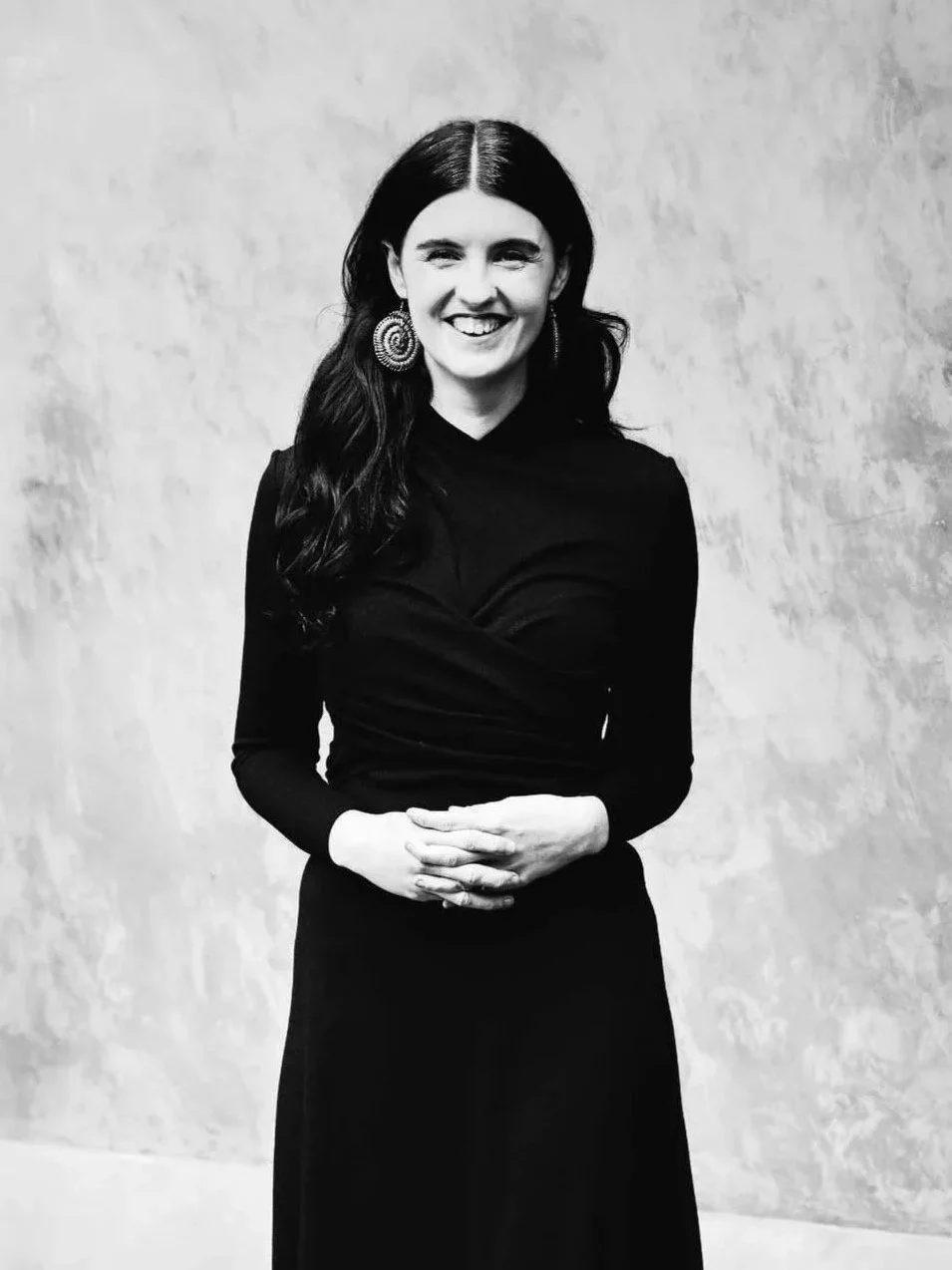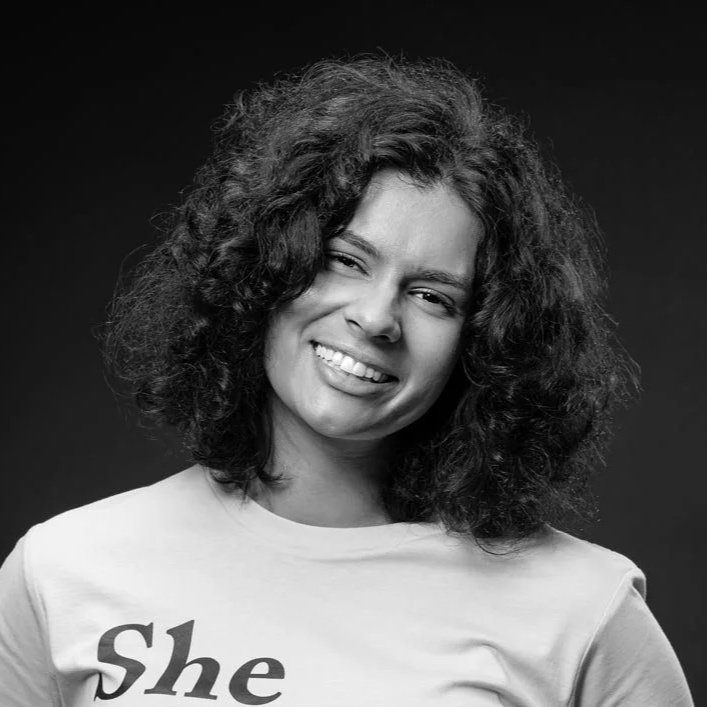Rebecca Keeley On Dismantling Barriers To Allied Health Access Through Digital Innovation
Rebecca Keeley is a dedicated allied health professional with a track record of exceptional leadership and expertise in rural & remote allied health service delivery across Australia.
She believes in the importance of blending innovation with on the ground practical experience to improve equitable access to healthcare.
Rebecca's dedication to this cause led her to found Yarn, an innovative digital health platform with a mission to tackle the obstacles of geographical isolation, increasingly challenging service delivery options, and growing waitlists for speech pathology services across the country.
She envisions empowering the allied health clinical community and the patients they support by building evidence-based, accessible programs in a fun, gamified way that gives parents the tools to support their child's communication while they wait.
Rebecca believes Yarn can be a part of the conversation about how we can use innovative technology as a key driver for revitalised and equitable future systems in healthcare across rural and remote Australia.
Rebecca discusses overcoming barriers to allied healthcare for rural and remote families in Australia, transforming access to speech pathology, and how ethically designed digital platforms can create equitable, tech-driven models that empower families with early childhood support.
Highlights from the interview (listen to the podcast for full details)
[Indio Myles] - To start off, can you please share a bit about your background and where you were first introduced to social entrepreneurship?
[Rebecca Keeley] - I was a speech pathologist for about 10 years, working in rural and remote parts of the country. I was always a public health girl at heart, I worked in the government system supporting families who didn’t have the means or capacity to access private services, and I loved my job. I really enjoyed working with patients.
I was born in Darwin, and I’ve worked exclusively in the bush, from the Northern Territory all the way down into country New South Wales. Over time, I just kept seeing the waitlists grow and grow. Despite our best efforts, the way we were working in government wasn’t fixing the problems. I thought to myself, “There’s got to be a better way than what we’re doing now.”
Sometimes there are catalyst moments in the universe that make you think, “Maybe now is the right time.” I remember when COVID happened and all of a sudden we were trapped in our homes. Everyone realised telehealth was a viable option, and it was probably one of those ‘aha’ moments for me. We were capable of using different tools to reach people instead of always bringing them into a clinic.
That sparked the question: how could we build something purpose-built to close this gap and support families living far from their closest town to see speech pathologists? That led me down the path of asking myself: how do you even start a company, and more confusingly, how do you start a tech company as a clinician?
In the classic Type A way, I decided I needed to vastly over-educate myself! I headed overseas to Oxford University and completed a Master’s of Business with a focus on social entrepreneurship. I chose Oxford because I wanted to learn from amazing founders from all over the world, entrepreneurs from remote parts of India, Cape Town in South Africa, and across Nigeria. I wanted to understand how they delivered services and built sustainable business models. I thought that learning from diverse perspectives might give me a better chance of solving the problems we were struggling with at home.
As the founder of Yarn Speech, can you share more about this enterprise and how it is improving access to speech pathology services, particularly for families in rural and remote communities?
Yarn is the crazy journey I’ve taken to turn all the ideas floating around my head into real change. What we build are evidence-based and research-backed digital intervention platforms for kids who are stuck on the waitlist in Australia.
Initially, I thought what we needed to create were the home programs we used to leave with families. This idea stemmed from my time in the Northern Territory, where we would physically mail scrapbooks glued together with Ziploc bags full of flashcards. Needless to say, these programs weren’t very durable, especially in some of the most remote communities, and often I’d never see them again.
I realised we needed to build these programs digitally. But when we started talking to families and speech pathologists across the country, we discovered the real problem wasn’t necessarily once you got the program, it was that families across Australia were sitting on waitlists for years.
In some parts of the country, the average wait time is four years. Considering how critical early intervention is, you would almost have to refer your child to a speech pathologist before they were even born to get support in time for school. To me, that was just completely unacceptable.
Now, what we do at Yarn is build fun, gamified programs that families can do at home while they wait. This way, they can get started, learn those core concepts, and feel like they are actively moving forward instead of sitting defenseless with nothing to do for years.
Importantly, we don’t replace the role of a speech pathologist. There are many children who will always need face-to-face intervention. But while families remain on waitlists, we give them tools so they don’t feel helpless.
Why is addressing geographic and systemic barriers to allied health services critical for rural and remote communities in Australia?
Let’s talk about allied health broadly, because speech pathology is just one piece of a very large and important puzzle. Allied health includes physiotherapy, dietetics, occupational therapy, naturopathy, and the list goes on. Sadly, it’s well known the further you get from the beach or the closer you are to the bush in Australia, the harder it is to access healthcare services.
It’s not for lack of trying. We have incredible clinicians doing their absolute best to service these areas, but sometimes the answer isn’t to put a speech pathologist in the middle of the desert to support five families. The reality is that waitlists are significantly longer because there simply aren’t enough clinicians to meet the demand.
Often what happens is that a clinician who does move to one of these communities will stay there for life. For example, a physiotherapist might have been in a town for 30 years, serving their community beautifully, but it’s still not enough to meet the needs of everyone. So waitlists and access problems continue to balloon.
As a society, we also introduced the NDIS, which I would describe as a gold-standard service. It’s a mixed bag of government policy, but one of the biggest blessings for me was going overseas to Oxford and realising how wonderful a system it actually is. Sometimes when we’re in Australia, we lose perspective of just how much access we have compared to the rest of the world.
The NDIS doesn’t exist anywhere else in the world. There is no other society that supports its population with disabilities in the way we do here. Is it perfect? No. We’re still figuring it out and still learning, but we are very blessed to live in a place that cares so deeply for people living with disabilities.
However, the NDIS has changed the market conditions for how services are provided. Let’s use that same physiotherapist who has been in a town for 30 years as an example. They might have a caseload of 20 to 30 people they’ve worked with for a long time.
Now, those patients are funded for life, so the physiotherapist shuts their waitlist, removes themselves from the wider workforce, and continues supporting that group consistently and sustainably. For them it makes sense, they’ve got security, their patients are cared for, and the model is stable.
The problem is that this dynamic has pulled a significant part of the workforce (particularly that middle tier of experienced clinicians) out of circulation. What’s left is a lot of children who may just have developmental delays, who aren’t going to end up with long-term permanent disabilities, but who still need early support. Right now, there simply aren’t enough providers to deliver that care.
At Yarn, that’s the gap we’re targeting. We’re focused on those kids who are currently falling through the cracks of the system.
What have been some of your biggest challenges in developing a social enterprise and working within the tech ecosystem, and how have you approached navigating these obstacles?
Honestly, I’ve been flailing about trying to figure it out the whole time! I don’t think anyone who comes from a clinical background can say they feel settled in the tech world. I’m doing my best to fit in, but it’s been a steep learning curve.
What’s been grounding for me is working within social enterprise and social impact. Traditionally, when you think about technology without the impact lens, you think of big tech companies like Apple and Google; giant conglomerates with lots of money and perks like free lunches. That model just doesn’t apply to healthcare, and it never has. I still remember how much I lived for the occasional pizza lunch in the public health system! That’s really where my professional roots are.
The pace of technology and the whole ‘move fast and break things’ mentality doesn’t work in healthcare. It absolutely doesn’t work when you’re dealing with children. We need to take time, ensure evidence, and build trust in what we deliver. For me, founding Yarn has been about figuring out where I’m comfortable to sit. Where do my ethics fall on this journey, and at what pace am I prepared to move, knowing what I do about healthcare and research?
The idea of “move fast and break children” is horrifying, and that’s exactly why I believe we need to move with care. The social impact community has been such a great place to land, because the values are the same.
Whether you’re working with refugees, vulnerable communities, First Nations peoples, or children in tech, the responsibility of social enterprises is the same. These are vulnerable groups, and it’s our job to safeguard them by making sure what we build is ethical and responsible. Children are precious, and they deserve to be protected.
What role do you see technology and digital platforms playing in reducing healthcare inequities, especially in communities with limited access to healthcare systems across Australia?
Technology plays a huge role, because the answer can’t simply be to put a clinician in the middle of nowhere. I would love that to be the answer, and I would love us to have the capacity to do it, but Australia is a really big country, and there’s a lot of space between communities. There are only so many small planes we can fly between these places!
We have to find ways to bring our knowledge and capacity to educate and support into these areas. It doesn’t matter if you live on a station in the middle of nowhere, you’re still entitled to the same level of healthcare as someone living in Bondi. The question is: how do we provide that care in a way that’s sustainable and adaptable to the community?
For me, that answer is technology, because we can change and adapt things quickly. For example, in one community, a child might face a particular problem, so we ask: how do we build something purpose-built for that child and their family? How can they access the right activities from our library so that a child who loves dinosaurs and trucks can engage with tailored programs, learn core skills, and not even realise they’re learning?
If we can’t physically put a person there, which is always the gold standard, then the next best thing is ethically designed health tech platforms.
As an AMP Foundation Tomorrow Maker, you’ve had access to support to help develop and grow Yarn Speech. With your participation in the Tomorrow Makers program so far, what reflections or learnings could you share with our audience?
The biggest thing that has come out of the Tomorrow Makers program for me, particularly through working with the AMP Foundation, is their deep knowledge of social enterprise and the many different ways it can present in Australia.
Traditionally, in Australia, we’ve understood charities and what they stand for, and we’ve understood not-for-profits and what they stand for. But I think we’re still learning, as a country, what social enterprise actually means. The AMP Foundation and the Tomorrow Makers program really understand this space, and they’ve been fantastic at supporting founders to navigate it and build sustainable business models so that our impact is lasting and long term.
That’s something I’m incredibly grateful for, the depth of knowledge and the way they understand where they fit in the ecosystem, and how they can best support founders.
The second thing is the people. Honestly, how great are they? I’m such a fangirl of the other founders in the program, and I feel perpetual imposter syndrome being around them. Indio, you have the blessing of getting to speak with so many of them, and people should be jealous of your job!
The diversity of impact across the program is amazing. Luke’s work with Fair Threads, supporting people in their transition out of prison; Sita’s work in women’s history and education; Maria’s work providing services to people with disabilities, these are all such different humans doing such different work. Yet together, it feels profound. I feel grateful to be a part of it.
What advice would you give to someone who’s starting a social enterprise or building something they hope will create impact?
I’d say be shameless. That probably sounds a bit awful, but someone once told me, “You’ll never get anywhere if you don’t ask. Otherwise, you’ll just stay exactly where you were to begin with.”
If there’s someone working in your space, in an adjacent field, or even just someone whose work you think is amazing, send them an email. The worst that can happen is they don’t reply, and then you’re no worse off than before. Nothing has changed. Whether you’re starting out as a side hustle and hoping it becomes a full-time thing, or diving in headfirst like I did, just go for it and start asking. People in this ecosystem are incredibly kind and generous with their time because we’re all trying to make the world a better place.
It’s also important to look beyond your field. For example, take Sita’s enterprise She Shapes History. Sita works in tourism, running walking tours on women’s history. Let’s say you work in the refugee community in Sydney; could you apply a similar walking education model to your work?
Sometimes it’s not about copying someone else’s impact but learning from their business delivery model. In my experience, most people are more than happy to share tips and advice along the way.
What inspiring projects or initiatives have you come across recently creating positive change?
I’ll shamelessly plug Tanya Egerton, who’s a previous Tomorrow Maker and founder of The Remote Op Shop Project. When I first met Tanya, it was a small project in a few First Nations communities in the Northern Territory. Now, it’s expanded across Northern Australia and into Central Australia. She’s doing incredible work, not only herself but also by empowering women in these communities to lead. I just cannot get enough of what she’s doing.
Something completely different (but equally impactful) is from a friend of mine in Cairns who works in tuna fishing. They sell line-caught tuna and are the only MSC-certified tuna fishery in all of Australia. A fun I recently learned is that every single can of tuna on Australian supermarket shelves is imported, not one brand sells locally caught tuna. They’ve now developed the first-ever Australian-caught and canned tuna, which I think is cool.
They’re focused on ethical fishing and supporting reef sustainability, which is obviously a long way from allied healthcare, but it’s another form of impact.
What’s so wonderful about programs like the AMP Foundation Tomorrow Makers and podcasts like Impact Boom is you realise there are so many ways to make the world a better place. You can stick with your passion area of course, but it’s also important to shout out the amazing work happening in completely different spaces.
To finish off, are there any books or resources you’d recommend to our audience?
I’m going to take this down a slightly different route, because I’m sure you’ve had many guests on this podcast recommend incredible books like The Lean Startup. Instead, I think it’s important (especially if you work in this space) to read for joy.
Step away sometimes, and take the time to read something that doesn’t make you think too hard. Whether that’s Harry Potter or A Court of Thorns and Roses, sometimes you just need to switch off.
I’m a firm believer in working your important hours, doing good work, and then resting. Find books that bring you joy in your downtime, it’s just as important as the work itself.







